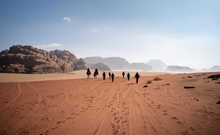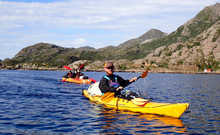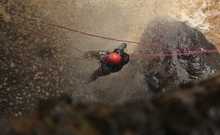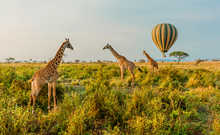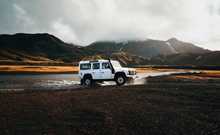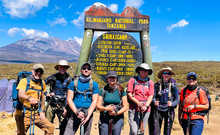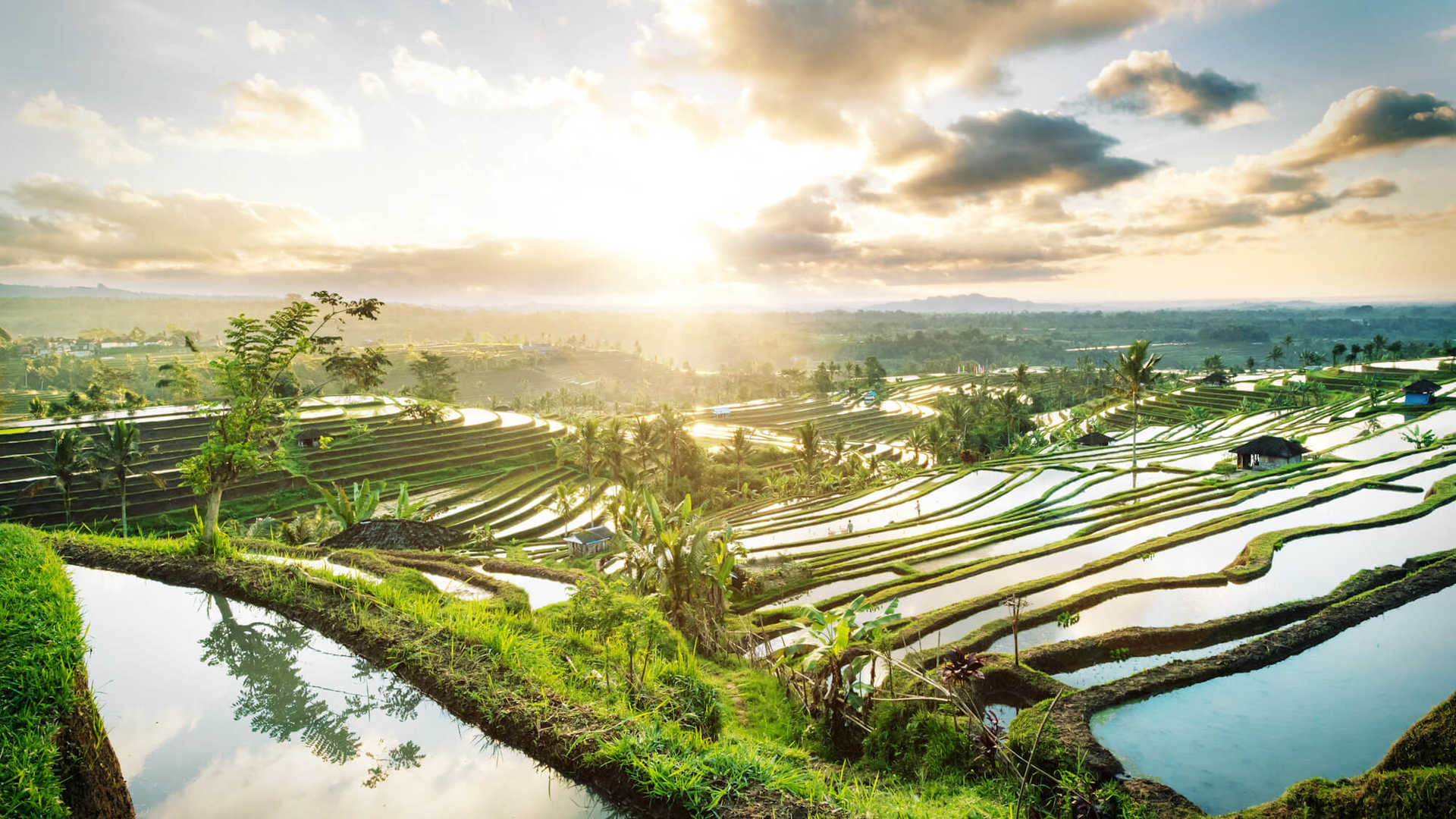Indonesia's paradisical islands are home to ancient temples, dense jungle and a whole host of exotic wildlife. Immerse yourself in the rice terraces and ancient Hindu temples on Bali, paddle through the mystical Komodo National Park, visiting it's largest habitant the Komodo dragon or challenge yourself to summit some of the islands vast, active volcanoes. The landscapes here are incredibly diverse, from the turquoise waters and white sand of the beaches of the coastlines to the vibrant greens of the rice fields and barren volcanic craters making your trekking adventure in Indonesia unforgettable.
How to get to Indonesia
You will need to arrive into Denpasar on Bali (DPS), Medan (KNO) or Yogyakarta on Java (YIA) depending on which adventure you are joining.
From the UK, Emirates provide convenient flights from Stanstead, Manchester, Birmingham and Glasgow, stopping in Dubai on route.
For travellers from the US, Emirates also have the most convenient flights from New York (JFK) and Los Angeles, stopping in Dubai. For those coming from Atlanta, Dallas and San Francisco, Qatar Airways and Singapore Airlines have convenient flights via Doha.
On arrival, after clearing immigration and collecting your luggage, please look out for a member of our team in the arrivals area. They will be holding a large “KANDOO” sign.
A customs declaration form must be filled out 48 hours prior to arrival in Indonesia. Follow the link to fill out the form -
Declaration Form
If you are changing airlines or re-checking your luggage at an airport on route, please ensure you leave a minimum of 3 hours between flights. This will account for any delays on arrival, travel time across airports (this can take longer than you think) and time taken to re-check baggage.
Our Indonesia adventures
BALI MULTI ACTIVITY | This Indonesian adventure on Java and Bali is for those wanting local culture mixed with the finest outdoor activities Indonesia has to offer. We kick off with a surfing lesson on the famous Kuta Beach. Next, we get to meet villagers from rural Bali and discover their isolated culture. Climb the famous Ijen volcano (2799m) with its acid lake, enjoy adrenaline pumping canyoning and rafting in the heart of the Balinese jungle and go mountain biking on Batur volcano. Finally, we will have the chance to discover rich marine life as we snorkel among the corals and exotic fish found off Menjangan Island.
VOLCANIC ADVENTURES: JAVA, BALI AND LOMBOK | Visiting the islands of Java, Bali and Lombok, this Indonesian adventure is for those who want to do some challenging trekking but also get to know the people and culture of Indonesia. We will climb to the peaks of numerous volcanoes including Rinjani, Ljen and Batukaru. As we travel across the islands we will see ancient temples, try the cuisine and spend time with local families.
ULTIMATE INDONESIA | The ultimate itinerary to immerse you in the cultural traditions and adventure that carve out Indonesia's character.
Here, we embrace our playful spirit; surfing, mountain biking and learning to dance like an Indonesian. We summit the renowned Mount Batur just as the sun begins to rise and relax in scenic, natural hot springs. We head over to Java to visit the electric blue lake on Mount Ijen before coming up close and personal to vibrant undersea landscapes whilst snorkelling around the beautiful reefs on Menjangan Island.
When to visit
You can find detailed advice on when to trek in our Indonesia Travel Guide.
This a brief summary. Indonesia has a dry and a wet season. During the wet season, from November to March, expect regular and heavy rain. There will still be warm and sunny days to enjoy but they tend to be interrupted by short tropical downpours. Temperatures will be between 25°C and 30°C with high humidity. The dry season, from April to October, is generally a more pleasant time to visit. The islands are hot and humid with an average temperature between 20°C and 27°C.
Training for your trek
Our only trekking trip in Indonesia is our
Volcanic Adventures. This trip is not to be underestimated and there is a reason why we give it a rating of 4/5 meaning,
challenging. You will be required to walk for up to 11 hours a day with a maximum ascent of 1500m and maximum descent of 2000m. The terrain can be steep and difficult and care should be taken to avoid slips and trips, particularly on Rinjani the ground can be soft underfoot, resembling sand dunes. Being in great physical condition with recent experience of hiking for several days in a row in a mountainous environment will ensure that you enjoy your treks. For more information on how you can get into good physical shape for this trip have a read of our training guide.
Equipment
Good equipment starts with your feet. Do not turn up for your trek in a shiny new pair of boots. Make sure your boots are well worn in and are comfortable. After your feet, make sure you are looking after your head. You will need something that provides good sun protection and walking poles will definitely come in handy when it's slippery underfoot. Finally, think about clothing layers, Indonesia is generally hot and humid. Quick drying, lightweight, baggy clothing will allow you to stay a bearable temperature in the heat. Other critical items are a light sleeping bag with a comfort rating of 10 degrees, a head torch (always worth having for middle of the night toilet needs), a comfortable day pack and lots and lots of high factor sunscreen.
Accommodation in Indonesia
Camping: We provide a good quality 3 man tent per 2 people to allow for maximum space and comfort. We will also provide a foam mattress per person and a mess tent for use at meal times and as a communal area. You will be required to pitch your own tent at the end of each day. At camp each evening we will set up a toilet tent and wash tent. These are very basic facilities that provide a little privacy. The toilet tent will simply cover a hole in the ground. The wash tent will contain a basin and cold water.
Home stay: On the two nights we stay with local families, the accommodation will be basic with dormitory style rooms and shared bathroom facilities that have cold water only. Although rustic, these nights are a great opportunity to get to know the local people and their way of life. It is a nice idea to bring something along for the family we will be staying with, maybe a local specialty from where you are from?
Hotels: Hotels will be of 2 or 3 star standard with twin or double rooms and en-suite bathrooms. Hotels in Indonesia really do feel luxurious and embrace their natural surroundings, expect open air showers and colourful furnishings.
Hostels: Hostel accommodation will be more basic with shared bathroom facilities.
Indonesian food is delicious! Expect plenty of meat with Sate Padang (beef satay), Ayam Bakar Taliwang (grilled chicken in spices) and Ikan Bakar (grilled fish in Sambal sauce). The cuisine is vibrant and colorful with intense flavors thanks to the vast array of spices.
A typical meal will always include steamed rice along with one or two main dishes of Fish, meat or vegetables. Vegetarians can enjoy Tempe Goreng (Indonesian tofu), Nasi Goreng Lotus (rice with vegetables and egg cooked in a lotus leaf) or Gado Gado (green vegetables with tofu and peanut sauce).
We will take our breakfasts and evening meals either in our hotel or at local restaurants. Lunches will be picnics of fresh fruit and vegetables, bread, cheese and cold meats.
If you have special dietary requirements, please let us know when booking your trip.
Please be aware that tap water in Indonesia is not drinkable. Mineral water can be purchased in most towns and villages but we recommend you bring a water filter or purification tablets. Please see the equipment pages on our website.
Toilets
In Indonesia, toilet paper is a rarity, with Indonesians preferring water as their cleanser of choice. Toilets are more often than not squatties with either a hose, bucket and water, or occasionally toilet paper available. If water is a no go in your eyes then it is definitely worth bringing your own loo roll. In many cases, wiping is a hands-on affair with locals sticking to using one hand for wiping and the other for eating, drinking and shaking hands. Of course, if your wash your hands thoroughly after each visit to the toilet then you shouldn't have any issues either way. In most hotels, however you will find there are flushing, western style toilets with toilet roll available.
Budget
The currency in Indonesia is the Indonisian Rupiah, Rp (IDR) You can withdraw Indonesian Rupiahs from in-country ATMs or exchange money at the airport/local currency exchange offices. ATMs and exchange desks are only found on bigger islands like Bali, Java (Denpasar, Ubud, Sanur, Yogyakarta).
The cost of an average meal in Java is around 4$ to 9$; in Bali it is 5$ to 12$.The cost of an average meal in Java is between $3 and $8. On Bali that increases to $4 to $11. When purchasing souvenirs, we ask our guests to respect the Species Protection Agreements (CITES) which protects 2,500 species of animals by prohibiting the trade of hides, scales, corals, shells and live animals.
Tips
Whilst Indonesia doesn’t have a strong tipping culture and locals don’t expect tips, they are always appreciated.
We recommend a budget of 80,000 – 100,000 IDR (equivalent to US$5 - $6 / £3 - £4) per person per day for tips
Tips for your crew on Mount Rinjani 150,000 – 200,000 IDR (equivalent to US$9 - $12 / £6 - £9) per guest
Tips are not a substitute for good wages: our guides are all well paid and well looked after. Tipping is completely voluntary, and at your discretion. Local currency is preferred.
